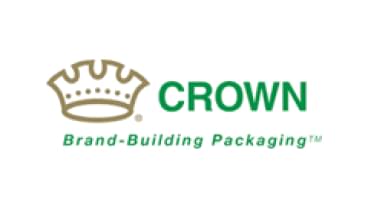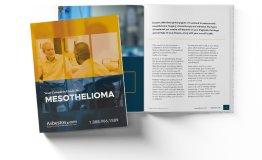Crown Cork and Seal
Crown Cork and Seal was founded in 1892. While it never created asbestos-based products, the company acquired Mundet Cork, which did manufacture items with the cancer-causing mineral. Crown Cork and Seal does not have an asbestos trust, though legal and financial options may still be available.

Written by Matt Mauney | Edited By Walter Pacheco | Last Update: December 19, 2023
Crown Cork and Seal History and Involvement With Asbestos
Crown Cork & Seal has a storied history that dates back well before the Industrial Revolution. It began with a simple invention in 1892 – the bottle cap – when founder William Painter discovered a better way to seal the soft drink and beer containers of that era.
While Crown never created asbestos-based products itself, the company in 1963 acquired Mundet Cork, which manufactured items with the cancer-causing mineral. This opened Crown Cork & Seal up to later asbestos litigation.
Crown purchased Mundet Cork because it manufactured cork-lined bottle caps. However, it also produced insulation products and cement, both of which contained large amounts of toxic asbestos.
Crown sold everything but the bottle-cap division within two years, but the asbestos liability remained with the company. For its Mundet mistake, Crown has paid out more than $700 million in asbestos-related claims.
Employees of Mundet’s insulation and cement plants and their family members were not the only ones at risk of asbestos exposure. Some customers, including several oil refineries and the U.S. Navy, may also have come into contact with asbestos.
Most of Mundet’s products were used commercially, leaving repair and installation workers also at risk.
Crown Cork & Seal Faces Asbestos Lawsuits
Crown Holdings was dealt a setback early in 2012 when Minnesota Gov. Mark Dayton stood up to big business. He vetoed proposed legislation that would have limited the liability for companies that capitalized on past asbestos uses.
Crown was successful pushing legislation in other states, most notably in Pennsylvania, where asbestos victims’ rights were reduced. But in Minnesota, the proposal, drafted by the powerful American Legislative Exchange Council, an antilabor group, was defeated by Dayton’s veto.
Had the bill had passed, it would have reduced the future liability of companies merging with or acquiring corporations still facing asbestos litigation.
In June 2012, a Louisiana jury held Crown 33% responsible in a $12 million verdict awarded to Frederick Schulte, who was diagnosed with mesothelioma in 2011.
Schulte worked as a shipfitter and ironfitter for McDermott Incorporated Shipyard, where he installed asbestos pipe insulation made by Mundet Cork.
Mundet Products That Exposed Crown to Asbestos Litigation
Construction workers were exposed to asbestos while working with cement, insulation and other materials. Asbestos was inexpensive and ideal for construction products due to its durability and fire-resistant properties.
Magnesia asbestos pipe insulation, which is made of magnesia alba or magnesium carbonate, can also contain asbestos. Mixing 85% magnesium and 15% asbestos binds the material, giving it strength and cohesion. Chrysotile asbestos fibers were most frequently used in Mundet’s pipe insulation.
Mundet Cork Products With Asbestos include:
- Mundet Mineral Wool Finishing Cement
- Mundet Mineral Wool Insulating Cement
- Mundet Cork 85% Magnesia Asbestos Insulation
- Mundet Block Insulation
- Mundet Pipe Covering
Where Is Crown Cork & Seal Today?
Known today as Crown Holdings Inc., it remains the largest metal packaging company in the United States, and one of the largest overall packaging companies in the world.
Crown serves markets for drinks, food, health & beauty, promotional, luxury and household/industrial products. It covers paper, plastic, metal and everything in between.
Crown has 192 manufacturing plants with more than 33,000 employees in 47 countries. What started with a “Crown Cork” bottle-cap manufacturing plant in Baltimore, grew into the only full-line global packaging company in the world.
By the 21st century, Crown sold its cosmetic and plastic businesses yet reported a strong $7.9 billion in net sales. Crown has been a leader in industry for more than 120 years, spanning a myriad of technological advances.
In 2017, Crown Holdings sold its global headquarters building in Philadelphia, where it called home since 1958. The company relocated its Corporate & Americas Division Headquarters roughly 30 miles away to Yardley, Pennsylvania, where it operates today.
Crown Holdings made a $579 million profit in 2021 and carried a market value of $13 billion as of March 2021, according to the Fortune 500.
This Page Contains 4 Cited Articles
The sources on all content featured in The Mesothelioma Center at Asbestos.com include medical and scientific studies, peer-reviewed studies and other research documents from reputable organizations.
- Crown Holdings, Inc. About Crown. (2022). Retrieved from https://www.crowncork.com/about
- Fortune 500. (2021, March 31). Crown Holdings. Retrieved from http://fortune.com/fortune500/crown-holdings/
- Tawa, S. (2018, May 26). Bottle Cap Creator Crown Holdings Plans To Move HQ Out Of Philly. Retrieved from https://philadelphia.cbslocal.com/2017/05/26/bottle-cap-creator-crown-holdings-plan-to-move-hq-out-of-philly/
- Louisiana Jury Awards $12 million to Victim of Mesothelioma. June 29, 2012. : Retrieved from https://www.prnewswire.com/news-releases/louisiana-jury-awards-12-million-to-victim-of-mesothelioma-160861585.html







